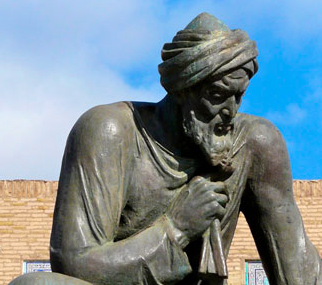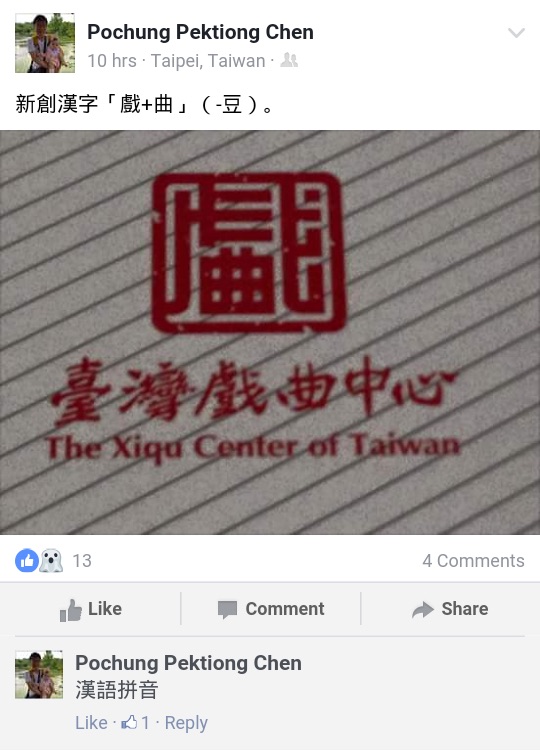Archive for October, 2016
The view from Dalriada
 Brendan O'Leary, "The Dalriada Document: Towards a Multinational Compromise that Respects Democratic Diversity in the United Kingdom", The Political Quarterly 10/27/2016:
Brendan O'Leary, "The Dalriada Document: Towards a Multinational Compromise that Respects Democratic Diversity in the United Kingdom", The Political Quarterly 10/27/2016:
Words and abbreviations matter, especially when they mislead. Brexit cannot and will not happen because ‘Britain’, a geographical expression, is not a polity, a sovereign state or a member state of the European Union, and cannot exit from any political organisation, let alone the European Union. The new Prime Minister Theresa May's early insistence that ‘Brexit means Brexit’ was not only a tautology which disguised her cabinet's indecision about what exit might mean, but was also nonsensical because the portmanteau has no political referent.
To insist that Ukexit rather than Brexit is the correct word for the phenomenon that may unfold is not pedantic or professorial quibbling. ‘Britain’ is inaccurate shorthand for the United Kingdom of Great Britain and Northern Ireland—for which more appropriate abbreviations are either the United Kingdom or the UK (UKGB & NI is an impossible mouthful). To use Brexit does verbal violence to the nature of the UK, which is a double union-state, not a British nation-state. It is tiresome to remind British people that Britain is not greater than Great Britain, and that Great Britain is part of the UK, not its entirety: tiresome but necessary.
Read the rest of this entry »
People she doesn't know
Yoram Meroz described this to me as a "lovely ambiguous headline": "Clinton aide Huma Abedin has told people she doesn’t know how her emails wound up on her husband’s computer", Washington Post 10/29/2016.
Read the rest of this entry »
Changing fashions in Chinese names
This morning, an instructor in Jiangsu province, who has been teaching Chinese Culture in college English classes for 12 years and has also been giving lectures on Chinese Culture to international students, wrote to ask about the possibility of becoming a visiting scholar at Penn for half a year. She introduced herself to me as Lǐ Fǔluòwá 李甫洛娃. Her name threw me for a loop.
Read the rest of this entry »
Debate quantification: How MAD did he get?
 During the last presidential debate Donald Trump started off speaking in a deliberate and controlled manner that soon gave way to his usual animated style. In an informal exchange, Cynthia McLemore observed that he was manipulating his pitch range, as he did in the second debate as well — beginning with a narrow range that dramatically widened as the debate progressed. This post is an attempt to quantify that pitch range variation with a metric Neville Ryant and I have found useful in other work.
During the last presidential debate Donald Trump started off speaking in a deliberate and controlled manner that soon gave way to his usual animated style. In an informal exchange, Cynthia McLemore observed that he was manipulating his pitch range, as he did in the second debate as well — beginning with a narrow range that dramatically widened as the debate progressed. This post is an attempt to quantify that pitch range variation with a metric Neville Ryant and I have found useful in other work.
Read the rest of this entry »
China's "core" leader
I've been reading countless reports about how Xi Jinping was made the "core" leader of China during the recently concluded meeting (6th Plenum) of the CCP, e.g.:
"China’s Communist Party Declares Xi Jinping ‘Core’ Leader
"China's Ruling Party Endorses Xi as 'Core Leader' After Meeting" (RFA, 10/27/16)
"Down to the core: Xi Jinping gets a new label, but no more power: In China, a year of political infighting lies ahead" (The Economist, 10/27/16)
"China’s Xi Jinping Tightens His Hold on Communist Party: Officials at conclave designate the president as the ‘core’ of the leadership, using title conferred on Mao Zedong " (WSJ, 10/27/16)
—–
*Notice, in the photograph accompanying this article (and many other articles), all the members of the Standing Committee, seated at the front of the hall facing us, raise their hands in exactly the same way (angle, height, position of thumb versus other fingers, etc.). The other members of the Politburo, with their backs to us, also match the posture of the Standing Committee members, but not with such exactitude.
Read the rest of this entry »
"Big league" vs. "bigly": a coda
After I posted "The history of Trumpian 'big league' (now even bigger league!)" on Sunday, there was a flurry of media coverage on the hotly contested question of whether Donald Trump says big league or bigly. A sampling:
- "So, Which Is It: Bigly Or Big-League? Linguists Take On A Common Trumpism" (NPR, 10/23/16)
- "Yes, Trump Really Is Saying 'Big League,' Not 'Bigly,' Linguists Say" (New York Times, 10/24/16)
- "Linguists: Trump Is Saying 'Big League,' Not 'Bigly,' Still Stupid Either Way" (Wonkette, 10/24/16)
- "Why You Hear Trump's 'Big League' As 'Bigly'" (New York Magazine, Science of Us, 10/24/16)
But if spectrographic analysis and extensive historical documentation aren't enough to convince people that Trump is actually saying big league, we now have confirmation straight from the horse's mouth. As Sopan Deb of CBS News reported on Twitter, Trump was asked about this burning issue in an interview by EWTN Global Catholic Network.
Read the rest of this entry »
Paleographers, riches await you!
"Hefty award offered for deciphering oracle bone characters" (China Daily, 10/28/16):
The National Museum of Chinese Writing on Thursday launched an award program to encourage people from around the world to help decipher oracle bone inscriptions.
According to the museum based in Anyang City in central China's Henan Province, where oracle bones and script were discovered from the Ruins of Yin over 110 years ago, the program will offer 100,000 yuan ($14,700) for each unknown character to be deciphered.
Inscriptions on tortoise shells and animal bones represent the original characters of the Chinese written language. They date back to the Shang Dynasty (1600-1046 BC).
Chinese characters constitute the oldest continuously used writing system in the world. The logograms convey both meaning and pronunciation.
To date, archaeologists around the world have discovered some 4,000 bone inscription characters by studying 160,000 relics, but only 1,600 of the characters have been deciphered.
Read the rest of this entry »
Algorithms: Threat or Menace?

Muhammad ibn Musa al-Khwarizmi (see also here)
… was a Persian mathematician, astronomer, and geographer during the Abbasid Caliphate, a scholar in the House of Wisdom in Baghdad.
In the 12th century, Latin translations of his work on the Indian numerals introduced the decimal positional number system to the Western world. Al-Khwārizmī's The Compendious Book on Calculation by Completion and Balancing presented the first systematic solution of linear and quadratic equations in Arabic. He is often considered one of the fathers of algebra. He revised Ptolemy's Geography and wrote on astronomy and astrology.
Some words reflect the importance of al-Khwārizmī's contributions to mathematics. "Algebra" is derived from al-jabr, one of the two operations he used to solve quadratic equations. Algorism and algorithm stem from Algoritmi, the Latin form of his name.
Al-Khwarizmi flourished in the early 9th century A.D., but algorithms — step-by-step procedures for solving problems by well-defined rules — have been around for a lot longer, e.g. Euclid's algorithm for computing the greatest common divisor of two numbers.
I bring this up because of a lexical change in progress, whereby algorithm is apparently being redefined to mean something like "one of the mysterious and scary AI programs that are invading our lives". At least that's the meaning implicit in the BBC World Service program "Algorithms: Should We Worry?" —
Artificial intelligence is taking over everything from medical diagnosis to legal due process. Rob Young asks if the lack of transparency and risk of error are causes for concern.
Plus, Iran! Also, Arabic!
Read the rest of this entry »
Daigou: a Mandarin borrowing-in-progress in English
Surprisingly few words have been borrowed from Mandarin into English in recent years. Most of the Sinitic borrowings in English — and there are not many — are from other topolects (Cantonese, Shanghainese, Hokkien, etc.), and they occurred nearly a century or more ago.
"Chinese loans in English" (7/10/13)
Since the founding of the PRC, most of the terminology borrowed into English from Chinese has come via loan translations, e.g., "paper tiger" and "running dog". There are a few transcribed terms, such as "guanxi" ("networking; relationships"), though I doubt that they are very well known outside of the relatively narrow field of China specialists.
Read the rest of this entry »
Treasure language
A talk at Charles Darwin University by Steven Bird:
With thousands of languages in danger of disappearing, should we redouble our efforts to "save" them? Or could we open ourselves to the stories, lives, and world views of the people who speak the smaller languages around us? Steven Bird, computer scientist and linguist, draws on unconventional sources of wisdom to suggest concrete actions for us to take, and inspires us to believe we can alter the future course of language evolution.
Steven has journeyed to some of the remotest places in Africa, Melanesia, Central Asia, and Amazonia to record speakers of the world’s treasure languages. He is visiting Darwin, a hot spot of linguistic diversity and language endangerment, to explore new ways to keep languages strong. Steven has held academic positions at the universities of Edinburgh, Pennsylvania, Melbourne, and Berkeley. He is currently a visiting professor at Charles Darwin University.
How many more Chinese characters are needed?
I was stunned when I read this op-ed piece in the NYT yesterday (10/24/16): "China's Digital Soft Power Play". In it, the author, Jing Tsu (a professor of Chinese literature and culture at Yale), writes:
This month, the Chinese government plans to introduce codes for some 3,000 Chinese characters as part of a grand project, known as the China Font Bank, to digitize 500,000 characters previously unavailable in electronic form. Until now, only 80,388 characters have been encoded in the international computing standard, Unicode.
The project highlights 100,000 characters from the country’s 56 ethnic minorities, and another 100,000 rare and ancient characters from China’s written corpus. Deploying almost 30 companies, institutions and universities, it’s the largest state-funded digitization project ever undertaken.
Read the rest of this entry »
I am much encouraged
At last, an animal communication story involving healthy skepticism rather than vacant-eyed credulity, and human sagacity rather than wondrous communicative brilliance by our furry, finned, or feathered friends. Read on to be reassured about the intelligence of your species.
Read the rest of this entry »
Permalink Comments off
